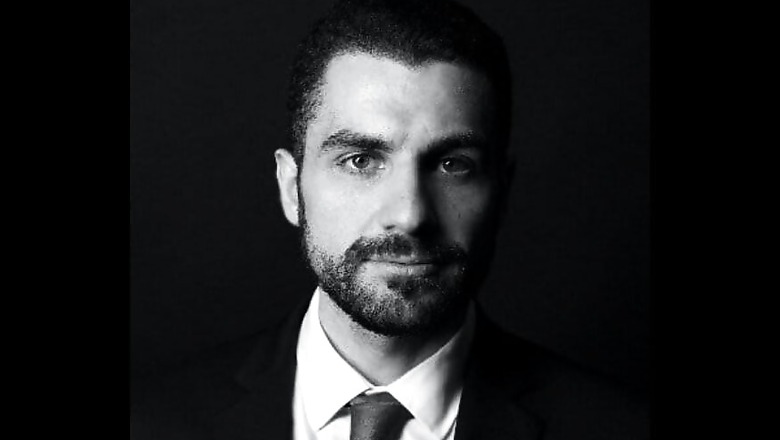
views
Thirty-year-old Qutaiba Idlbi is a man on a mission. A Syrian refugee who recently earned a bachelor’s degree after 12 years of missing out on college, he is determined to bring the rule of law in his worn torn country.
Idlbi grew up in Damascus in a middle-class family where father worked as a publisher and, due to his involvement in political activism, was detained eight times between 1965 and 1980. Idlbi own life is marked with detentions, imprisonment and exile in Syria which stands torn by a civil war. He faced detention in Syria twice, and to avoid the third one by the Bashar-Al-Assad government, he left the country. In this time, Idlbi decided to travel through other parts of the Middle East, and met Robert S. Ford, former US Ambassador to Syria. Ford planted the idea in his head in 2013, to join the Leaders for Democracy Fellowship run by the state department, which, Idlbi says, proved to be a vital experience that nurtured his interest in politics. Determined to complete his bachelor’s degree, he applied to Columbia University three years later in 2016. In May this year, Idlbi graduated from the School of General Studies (GS) as a member of the first cohort of refugee students to benefit from Columbia’s Scholarship for Displaced Students (CUSDS).
On May 20, he went on social media to post his story: “9 years ago my jailer asked me, what would you do with freedom? I told him I would start by making up my missed exams to complete my degree. He laughed: In your dreams (sic)”.
In an interview to News18, Idlbi talks about this very dream that has finally come true, his vision for the “ordinary Syrians that revolted while knowing the price would be torture, death, or displacement.” With his new scholarship, this political science major now wants to pursue law. Edited excerpts:
How are Syrians looking at the racial unrest in the US sparked by the killing of George Floyd?
The response to the racial unrest in the US has been heartening. Syrians in Idlib, for example, have been going out in demonstrations in support of the African American community and in condemnation of the killing of George Floyd and racist policies in general. I think over the last 10 years, Syrians really understood what it means to be repressed and they are able to sympathise with the sufferings of others.
What will the political leadership in Syria look like in post-Covid19 world? Will the pandemic give boost to populist, repressive and authoritarian regimes?
This is something I continue to monitor carefully. The pandemic allowed many governments and regimes to be more authoritarian, especially many of the governments that are not very accountable to their own people. I think the battle against authoritarianism around the world is going to become harder. On the other hand, I hope the pandemic has shown to people that populism is not the solution and that ideologies are not beneficial in the absence of good governance and sane policies.
Can you tell us about the events that lead to your imprisonment? What ideals and goal were you fighting for that you didn't care about the repercussions? Please recount the events that lead to your detention and political exile.
I was detained twice in Syria. The first time was on my out of an area that the government besieged because it was a hotspot for demonstrations. I was delivering some aid and acquiring footage from the activists in the area about their demonstrations and government violations in the area. The government did not know that information, and they arrested me because someone saw me meeting those activists and they thought it was suspicious for me to be in that area. While I had my own ideas, a lot of the people who I personally saw inside back then were just detained and tortured based on suspicion.
Personally, I believed in the Syrian people’s right to freedom and dignified life that is not controlled by the government in every little aspect. I was detained the second time because of my activism as a civilian journalist talking to international media about what was happening in Damascus back then. After being released, the government came to arrest me a third time for helping in hiding one of the well-known human rights lawyers in Syria who was wanted by the government for her role in exposing the violations committed by the government. After escaping arrest, the government tried to kidnap my 16-year-old brother to force me to deliver myself and that's when I realised it was time for me to leave the country.
World leaders such as Nelson Mandela to Mahatma Gandhi were also imprisoned. Did their stories keep you afloat while you were in the jail? Who are the heroes in Syria people talk about in prisons and protests?
I did not think about the experience of Gandhi, Mandella or anyone else while in prison. Detention in Syria is not like any prison, and if you are lucky enough to stay alive while in there, it is hard to think of anything else but how to stay alive and how long you would be able to hold on or how much torture your body will be able to handle. I can't think of one particular leader to recognise.
While there are many for sure, the uprising in Syria was not a movement organised/influenced by an individual or a group. It was a natural reaction to long decades of repression, fear and injustice. One community got enough with it and then every other community followed without waiting for a leader to inspire them or a group to organise them. It is those ordinary Syrians that revolted while knowing the price would be torture, death, or displacement who should be recognised.
With the freedom you got, you wanted to make up for your missed exams and complete the degree. The jailor laughed at your dreams but here you are with a degree from Columbia University. What is your next goal? Do you plan to put your scholarship to use in Syria?
In the short run, my aim is to go to law school to get the necessary knowledge and experience so I can, one day, help build a country based on the rule of law, a country that respects who people are and the rights of people to be who they want to be, and a country where everyone is equal. In the long run, my hope is to be able to transfer my experience at Columbia to Syria by starting a small college where Syrians can learn about the experience of other nations, where they can think critically about everything they've faced, and where they can think and explore for themselves.
Could you tell us about the ethnic and religious diversity of Syria — something we can't see because the civil war has cast shadow on its rich past.
Syria is a very diverse country, ethnically, religiously and racially. While the ethnic/sectarian lens help outsiders explain the conflict, the reality on the ground is very different. While I believe that Syria is unique in its diversity because it has always been in the centre of history and was always a land of refuge for people running from prosecution, its social ties, like any other community in political turmoil, have become very fragile. I believe that once the war is over, the country will be able to come back together.
American diplomatic cables leaked by Wikileaks threw light on how USA’s covert foreign policy was a regime change in Syria. What do you have to say about the foreign interventions, United States of America and Russia and then their allies in the civil war in Syria? How do you think Saudi Arab, Turkey and Iran played their role?
I'm not familiar with the leaks you are talking about. The issue of foreign interference is still an issue of debate within ethical studies of international politics. A lot of people mention Russia, the United States, and other countries as if they are all the same, but they forget to mention that while those countries had different levels of interference in Syria in the last decade, some had the blood of tens of thousands of Syrians on their hands while others do not. I'm not familiar with the leaks you are talking about, but it is very clear that if the U.S. wanted a regime change in Syria, it would have supported a military campaign similar to what happened in Lybia or Bosnia, or it could have supplied the rebels with MANPADs as it did in Afganistan, or it could have implemented one of the multiple “Red Lines” it has drawn in Syria. I believe the US was and is still interested in some form of a political transition, but not in a revolutionary regime change as some imagine. Similarly, other countries interfere in other ways under different slogans but, at the end of the day, each government does what it thinks best for its own people. I think the Syrian people will always remember who supported them in their struggle for freedom, and who stood against them and supported the slaughterer.
What do you have to say about the “secularism” of Bashar-Al-Assad? Every country has its secularism, context and its critics. How would you see the term in context of Syria and the civil war?
I'm not an expert on secularism, so I can't really answer that much. I believe that any ideology that is forced on people from the top-bottom is authoritarian regardless of its claim of neutrality, or benefit to the people whether it is secular or religious. Assad is authoritarian and that is what matters for the Syrian people. The Syrian Republic is very young compared to other republics and, I think, it needs some 'freedom time' to recognise what it is and what system of governing works best for its people as long as it is not repressive or authoritarian over the Syrian people.











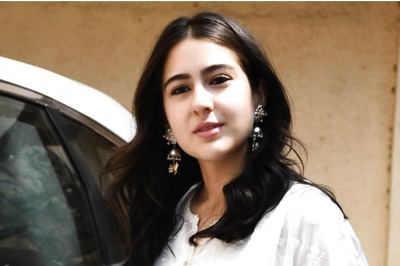

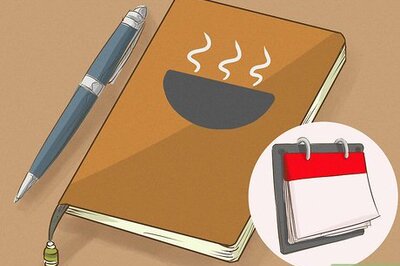
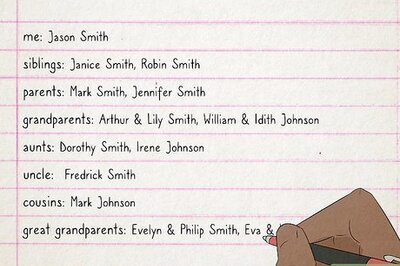

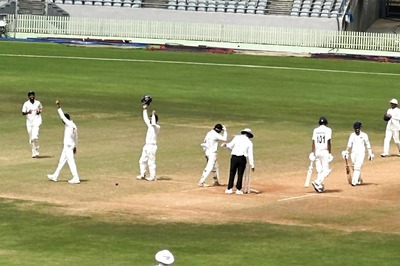

Comments
0 comment